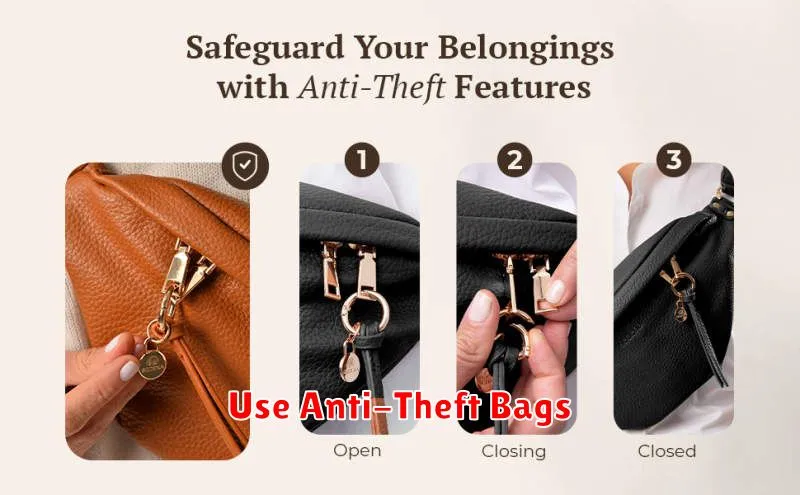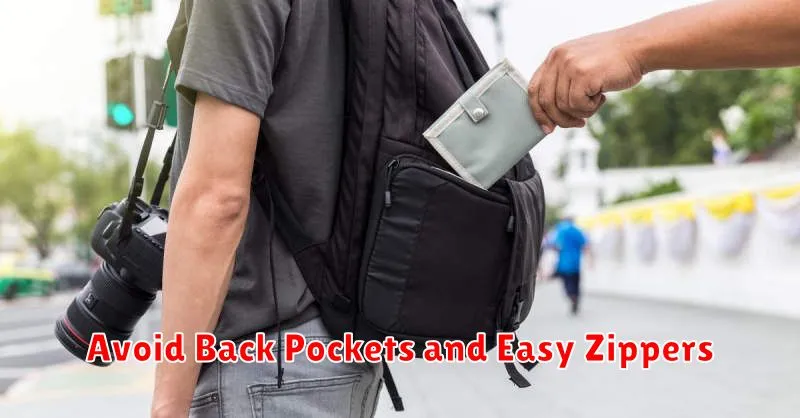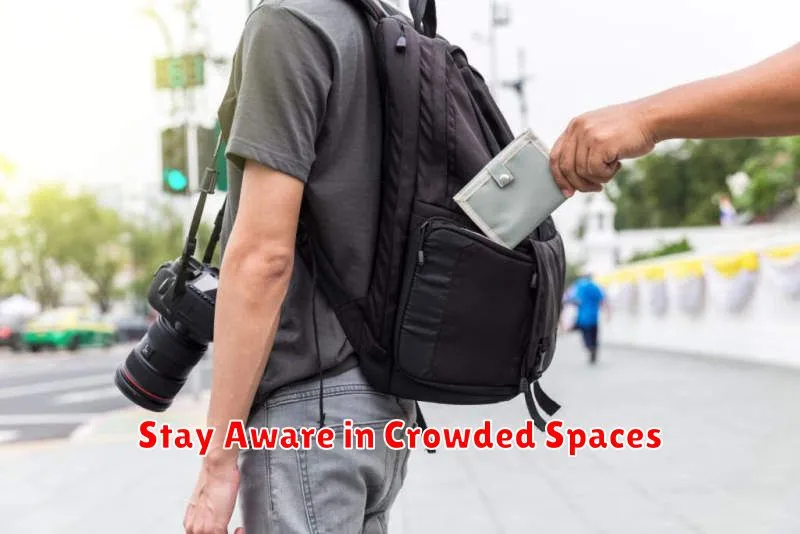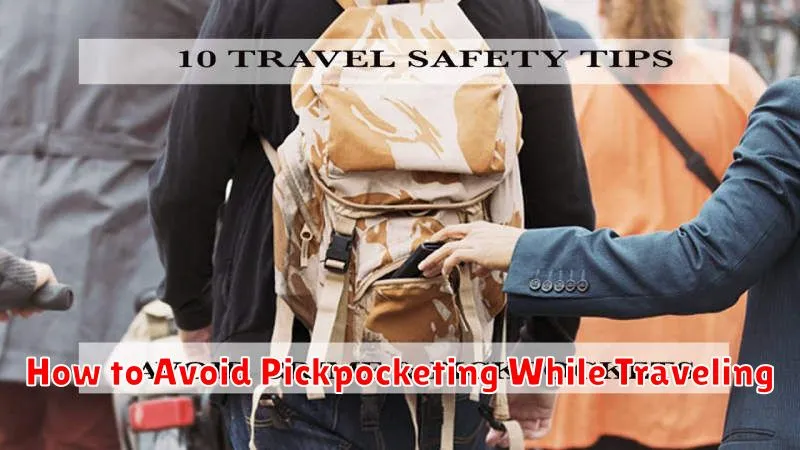Traveling can be an enriching experience, but it’s crucial to remain vigilant about your belongings to avoid becoming a victim of pickpocketing. Pickpocketing is a common crime that targets unsuspecting tourists, often in crowded areas or during moments of distraction. This article will provide practical tips and strategies to help you understand how to avoid pickpocketing while traveling, safeguarding your valuables, and enjoying a worry-free trip. Learn how to protect yourself from pickpockets by understanding their tactics and employing effective preventative measures. From choosing the right anti-theft travel gear to practicing situational awareness, we will cover essential strategies to keep your passport, money, and other valuables safe. Don’t let pickpockets ruin your travel experience – learn how to outsmart them.
Pickpocket prevention is not about living in fear, but about being prepared and informed. Whether you’re backpacking through Southeast Asia, exploring European cities, or enjoying a cruise, understanding the common methods employed by pickpockets is the first step to protecting yourself. We will delve into the psychology of pickpocketing, helping you recognize potential threats and avoid becoming a target. This guide will equip you with the knowledge and tools to minimize your risk of pickpocketing, allowing you to focus on the joy of exploration and discovery. Learn how to travel safely and confidently by implementing these simple yet effective strategies. Discover how to recognize and avoid common pickpocketing scams and travel with peace of mind.
Why Pickpocketing Is So Common
Pickpocketing thrives due to a combination of factors that create opportunities for thieves. Crowded areas, such as tourist attractions, public transportation, and markets, provide cover and distraction, making it easier for pickpockets to operate unnoticed.
Lack of awareness from travelers also plays a significant role. People engrossed in sightseeing or navigating unfamiliar surroundings are less likely to be attentive to their belongings, presenting easy targets. Furthermore, the ease of access to valuables in bags, backpacks, and pockets contributes to the prevalence of this crime.
The low risk of getting caught is another contributing factor. Pickpockets often work in teams, creating diversions and making it difficult for victims to identify the culprit. Even if caught, the penalties for pickpocketing are often less severe than for other types of theft, further emboldening these criminals.
Top Locations Where It Happens
Pickpocketing can occur anywhere, but it’s more prevalent in areas with large crowds and tourist attractions. Being aware of these high-risk locations can significantly reduce your chances of becoming a victim.
Tourist Hotspots
Popular tourist destinations, such as famous landmarks, museums, and historical sites, often attract pickpockets due to the high concentration of distracted individuals.
Public Transportation
Crowded buses, trains, and subways provide ample opportunity for pickpockets to operate, especially during rush hour. Close proximity to others makes it easier for them to steal belongings unnoticed.
Markets and Festivals
The bustling atmosphere of markets and festivals creates a perfect environment for pickpockets to blend in and take advantage of the crowds and distractions.
Restaurants and Cafes
Outdoor seating areas and crowded restaurants can be targets, especially if bags are left unattended or hung on the backs of chairs.
Use Anti-Theft Bags

Anti-theft bags offer a significant layer of protection against pickpockets. These bags incorporate various security features designed to deter thieves and safeguard your belongings.
Key features to look for include:
- Slash-proof straps and panels: These prevent thieves from easily cutting the bag open.
- Locking zippers and compartments: This makes it harder for pickpockets to access the contents of your bag.
- RFID-blocking material: This helps protect your credit card and passport information from electronic theft.
- Hidden pockets: These offer discreet storage for valuable items like passports and cash.
Consider investing in a reputable brand known for its quality and security features. While these bags might be slightly more expensive, the added peace of mind is well worth the investment.
Avoid Back Pockets and Easy Zippers

Back pockets are notoriously easy targets for pickpockets. They offer virtually no security and you’re unlikely to feel a hand slip in. Never keep valuables like wallets, phones, or passports in your back pockets.
Similarly, bags and purses with easy-to-open zippers are vulnerable. Pickpockets can quickly unzip and steal your belongings without you noticing, especially in crowded areas. Opt for bags with secure closures, such as clasps, buckles, or zippers with locking mechanisms.
Consider using anti-theft bags. These often feature slash-proof material and locking zippers, offering enhanced security against pickpocketing.
Stay Aware in Crowded Spaces

Crowded spaces are a pickpocket’s paradise. Maintain a heightened sense of awareness in these environments. Be particularly vigilant on public transportation, in markets, and during popular events. These are prime locations for pickpocketing due to the close proximity of people and the distractions they offer.
Avoid becoming engrossed in your phone or other distractions. This makes you an easy target. Scan your surroundings regularly and be aware of anyone getting unusually close. If you feel someone pressing against you or jostling you unnecessarily, be extra cautious and immediately check your valuables.
Consider using a small, secure bag worn across your body and in front of you. This keeps your belongings within your sight and makes them more difficult to access without your notice. Keep valuable items like your passport and extra cash in your accommodation’s safe when possible.
What to Do If You Get Pickpocketed
Being pickpocketed can be a distressing experience. However, swift action can mitigate the damage. First, remain calm and assess the situation. Determine exactly what is missing.
Next, contact your bank and credit card companies immediately to cancel any stolen cards and prevent unauthorized charges. This is crucial to protect your finances.
File a police report as soon as possible. Even if the chances of recovering your belongings are slim, a police report is essential for insurance claims and other official purposes. Provide as much detail as possible to the authorities, including what was stolen, the approximate time and location of the incident, and any suspect descriptions.
Check with lost and found departments in the area where you believe you were robbed. Although unlikely, your belongings might have been turned in.
Finally, review your travel insurance policy. Some policies cover lost or stolen items, so you may be eligible for reimbursement. Keep all documentation related to the incident for your records and potential insurance claims.
Backup Plans for Lost Items
While preventing theft is the primary goal, having backup plans for lost items is crucial. This minimizes disruption to your travels and protects you from financial loss and identity theft.
Passport: Carry a photocopy of your passport and store it separately from the original. Consider leaving a digital copy with a trusted contact at home. If your passport is lost or stolen, immediately report it to the nearest embassy or consulate.
Credit Cards and Debit Cards: Make a list of your card numbers and their contact information for reporting loss or theft. Keep this list separate from your wallet. Inform your banks of your travel dates. Consider carrying a separate emergency credit card.
Phone: Back up important data like contacts and photos to a cloud service. Enable remote tracking and wiping features in case of loss or theft.
Other Valuables: Photograph important documents and items. This aids in reporting and insurance claims. Consider travel insurance that covers lost or stolen belongings.

